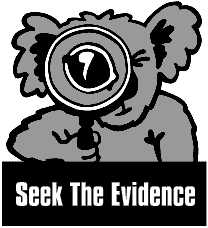In a recent blog post, I said I don’t believe in the supernatural. This statement, I realize, takes a pretty broad swipe at the universe. But if you have read my previous statements on belief, unbelief, atheism, etc., you’ll understand my lack of belief is, for the most part, not characterized by active disbelief. Instead, I consider it a provisional judgment on how to deal with life. To me, the natural world is the world.
Similarly, when I say I don’t believe in gods, angels, demons, leprechauns, elves, or any other magical beings, I’m not saying I positively know they don’t exist; I’m merely saying I lack belief in them. Operationally, I find no need for them. Can I prove they don’t exist? No, I cannot — nor do I wish to waste time trying.
A commenter on Vridar, John MacDonald, recently wrote:
It’s just as much a paralogism to think (i) There is sufficient evidence to conclude there is such a thing as the supernatural, as to think (ii) There is sufficient evidence to conclude there is no such thing as the supernatural. Both theism and atheism are factually incorrect and intellectually lazy. Agnosticism is the “Thinking-Person’s Position.”
If you haven’t studied for the SAT, the LSAT, or the GRE recently, a paralogism is “A piece of illogical or fallacious reasoning, especially one which appears superficially logical or which the reasoner believes to be logical.” [OED] In the realm of logic, it normally refers specifically to an argument that is invalid, but unintentionally so. However, in the general sense, it has come to refer to any invalid argument as well as any invalid conclusion. I’ll assume he means that I have reached an incorrect conclusion, since I presented no formal argument. Continue reading “On Provisional Judgments and Operational Atheism”

